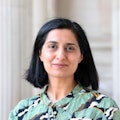Transformational: Converts in British Muslim Life

We are conducting a new study about experiences of Muslim converts in Britain. The aim of this three-year project is to explore if, and how, converts play a role in shaping, or transforming, Muslim communities in Britain by exercising leadership and changemaking in public and religious life.
In collaboration with the Convert Muslim Foundation, we will explore how converts demonstrate leadership in three distinct areas: academia, religious leadership, and the cultural and creative sectors. We want to find out where, and how, converts are contributing to, or leading, the development of life in contemporary British Muslim communities.
Evidence
Academic interest in British converts to Islam has been a feature of British Muslim Studies over the last twenty years. Research has focused predominantly on accounts of conversion, or ‘conversion narratives’ (Bryce 2010; Roald 2012; Awan 2011). There has also been a rather static academic focus on experiences of marginalisation among converts within both British society and British Muslim communities (Moosavi 2015; Amer and Howarth 2017). Overall, research has tended to focus on processes and experiences of conversions, and on the vulnerabilities and disadvantages faced by converts.
There is a smaller body of related research that examines the lives of converts some time after conversion and does not represent converts solely in terms of the disadvantages they might face. Some researchers have suggested that converts can aid the integration of Muslim communities in minority contexts (Jawad 2012; Sealy 2017). From this perspective, converts have the potential to act as ‘bridge builders’ between Muslims and wider society by drawing on their particular social and cultural resources (Sealy 2017).
In this study, we aim to contribute to the field of research around Muslim converts in Western contexts that focuses on their lives post-conversion. We seek to explore, in detail, the ways in which converts have settled into, and progressed within, their complex and intersectional identities. We will be considering if, and how, Muslim converts in positions of leadership and changemaking, from a range of professional and ethnic backgrounds, are transforming practices and norms in British Muslim communities, and perceptions of those communities in wider British society.
Aims of the research
The aims of this study are to:
Examine what resources (social, economic, cultural and religious) Muslim converts use to achieve positions of leadership or changemaking.
Explore how, and in what ways, converts have made distinctive contributions to British Muslim communities, and wider British society, in their leadership and changemaking roles.
Understand what the experiences of Muslim converts as leaders and changemakers can tell us about the complex relationships between ‘race’, ethnicity and religion in contemporary Britain.
Share these insights to inform and improve recognition of the contributions of convert Muslims to improved understanding of Islam in Britain.
Research methods
We have used qualitative research methods to understand how Muslim converts display leadership and changemaking within their relative fields and in Muslim communities.
We conducted thirty in-depth interviews with Muslim converts working in the following areas: academia; religious leadership; and the cultural and creative sectors. Interviewees came from a range of ethnic backgrounds to reflect the increasing diversity of Britain’s Muslim convert population.
Through these interviews, we hope to develop a rich and nuanced understanding of the experiences and achievements of Muslim converts in positions of leadership and changemaking.
Collaborative approach
From the design of the research, to the analysis of results and the dissemination of research findings, the project is informed throughout by our collaborative work with our research partner, the Convert Muslim Foundation. The focus of this study is to conduct research with Muslim converts.
The project has been guided by a steering group of Muslim and non-Muslim members who have expert knowledge of British Muslim converts, whether by lived and/or professional experience. The steering group has met annually over the three years of the project to share their expertise.
CMF will develop a wider network of organisations and groups that represent and support convert Muslims. We will explore ways in which this network can be maintained beyond the life of this study to benefit convert communities.
Who will benefit?
Findings from this project will be shared in a number of ways, with the aim of creating positive impacts for convert and non-convert Muslim communities, including:
- Contributing to shifting academic interest in convert Muslims by moving beyond conversion narratives, to experiences of longstanding and established convert individuals and communities. This will be achieved through academic journal articles and conference presentations.
- Shifting public narratives about Muslim converts (such as media representations) away from negative, suspicious, or ‘curious’ accounts to a more nuanced and detailed understanding of their experiences. This will be achieved through dissemination of findings through press releases and social media productions.
- Engaging and interactive dissemination through workshops to British Muslim convert communities, to recognise and celebrate achievements and to provide positive role models and case studies.
- In-person dissemination to British Muslim communities and organisations, for example mosques and other representing organisations, to improve understandings of convert Muslims and to promote better engagement, interaction, and support for them.
- Influencing policy by presenting findings to government departments to improve their understandings of convert Muslim individuals and communities, through policy briefings and/or presentations of research findings.

The research team
Please contact us if you have further enquiries.
Project Director

Professor Sophie Gilliat-Ray
Professor in Religious and Theological Studies, Head of Islam UK Centre
Research Associate
Convert Muslim Foundation

Batool Al-Toma
Management Board member

